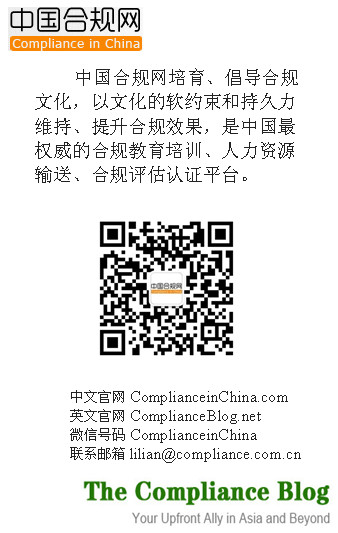Doing Business In China Illegally. Calling A Table A Chair Does Not A Chair Make
The Compliance in China blog has a really interesting and informative post, entitled An Incriminating Board Decision of D&B in Violation of Chinese Privacy Law. The post is on a recent China criminal case against Dun & Bradstreet China subsidiary (presumably a WFOE) Shanghai Roadway D&B Marketing Services and key personnel with that company. The post is interesting because it highlights how risky it can be to operate illegally in China and because it nicely sets out what it takes to criminally prosecute corporate officials in China.
Most importantly, it teaches some key lessons about doing business in China.
As a bit of a sidelight, I also have to admit that I like the post because a few years ago when a US company came to us with plans to run a “D&B type credit reporting agency in China” my law firm was adamant about how we doing so would violate China’s laws and that we would have no part in it. To our client’s credit (pun intended) it decided against doing business in China.
The Compliance in China blog relayed the following regarding the Shanghai Roadway D&B Marketing Case :
-
-Shanghai’s prosecutor charged Shanghai Roadway D&B Marketing Services Co., Ltd. with illegally obtaining private information on Chinese citizens. The Chinese press reported that the private information included personal data (income, job titles and addresses) of 150 million Chinese citizens.
-
-The Shanghai Zhabei District Court found Roadway guilty of illegally purchasing personal information of Chinese citizens and it fined Roadway around USD $160,500.
-
-Because this crime was allegedly committed by an entity and not an individual, Chinese law imposes responsibility for the entity’s crime on “the responsible persons who are directly in charge” and on “the other persons who are directly responsible”.
-
-Because intent is an element of the crime of illegally obtaining private information of Chinese citizens, the prosecutor could not obtain convictions against individual Roadway employees without proving that they committed the crime intentionally.
-
-Four Roadway employees allegedly involved with the buying of information were convicted and they were sentenced to up to two years in jail.
Here’s the kicker: Two of the four eventually convicted Roadway employees heard about a Beijing criminal case involving the purchasing of private information and they mentioned that case to the two other Roadway employees and they also consulted with Roadway’s lawyer about whether those purchases were legal or not. The lawyer did not tell them “yes or no” regarding legality. He instead proposed that Roadway change the title of their purchase contracts from “Contract for Purchasing Information and Data” to “Contract on the Advice and Consultation for Commercial Data,” as though that would in some way help. In light of the lawyer’s advice, Roadway continued purchasing the private data and that decision became “perfect incriminating evidence to prove that Roadway and the other four accused individuals intentionally committed the crime of breaching privacy.”
There are countless takeaways from this, including the following:
-
-First is that calling your table a chair not only does not make it a chair, it also will make anyone who sees the document in which you called the table a chair very suspicious that you were trying to hide the fact that you had a table. We always tell our clients that if what they are doing is legal, they should have no trouble being upfront about it and if they do have trouble being upfront about it, then they really need to decide whether they really should be doing it.
-
-Second is that you want a lawyer who is going to tell you what the law is and not just what he or she thinks you want to hear.
-
-Third is that operating illegally in China is a very bad idea. Like jail time bad.
The article was originally published at China Law Blog.






